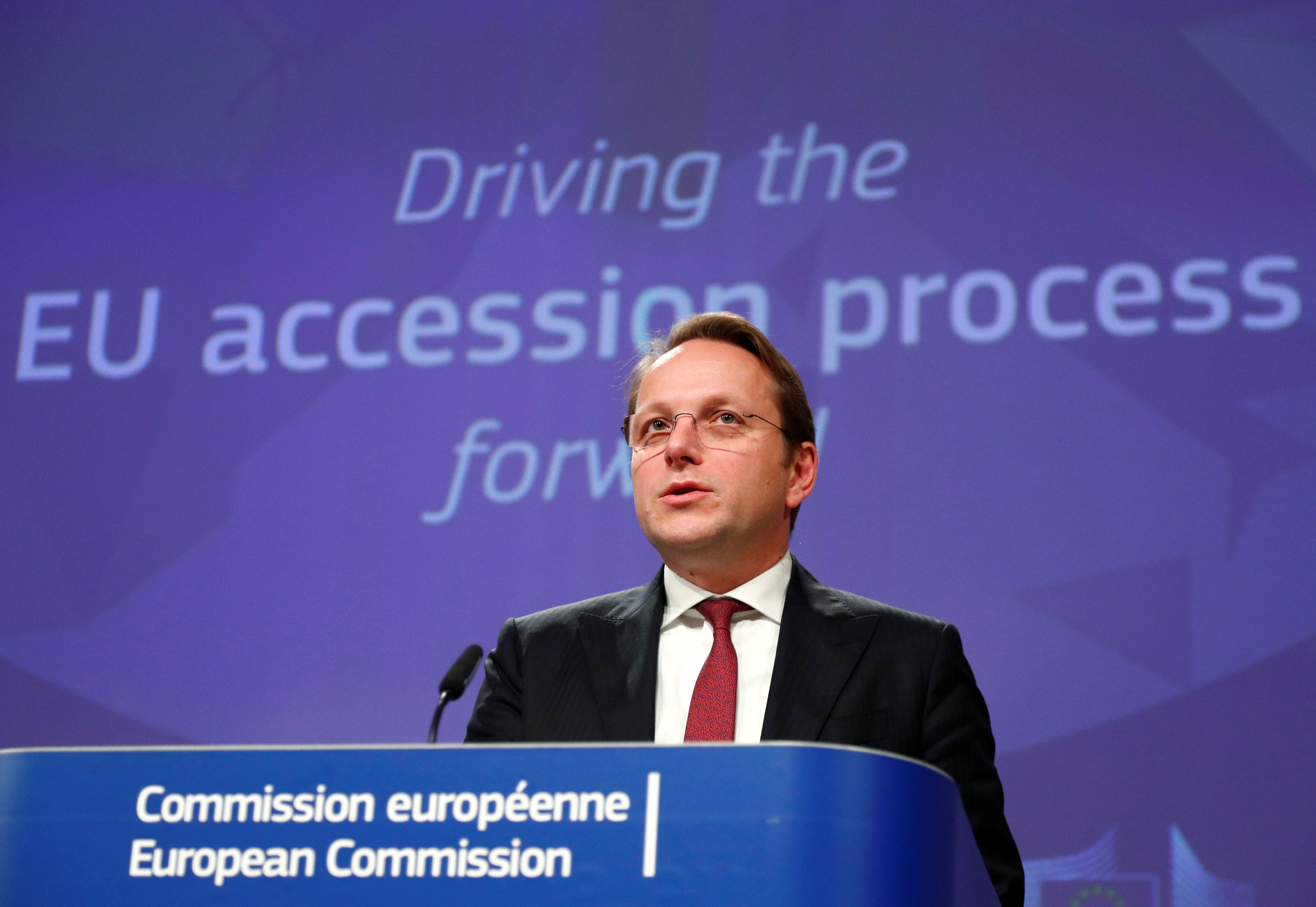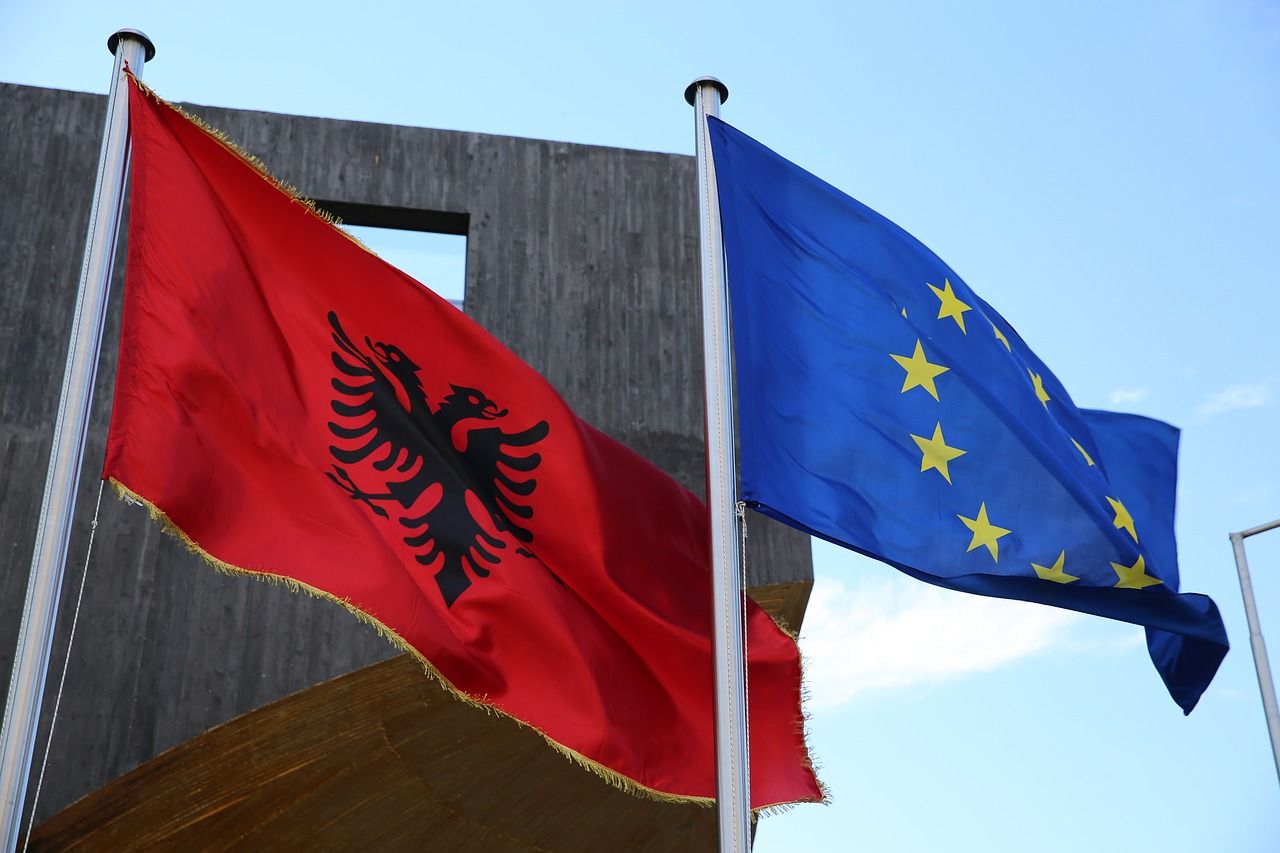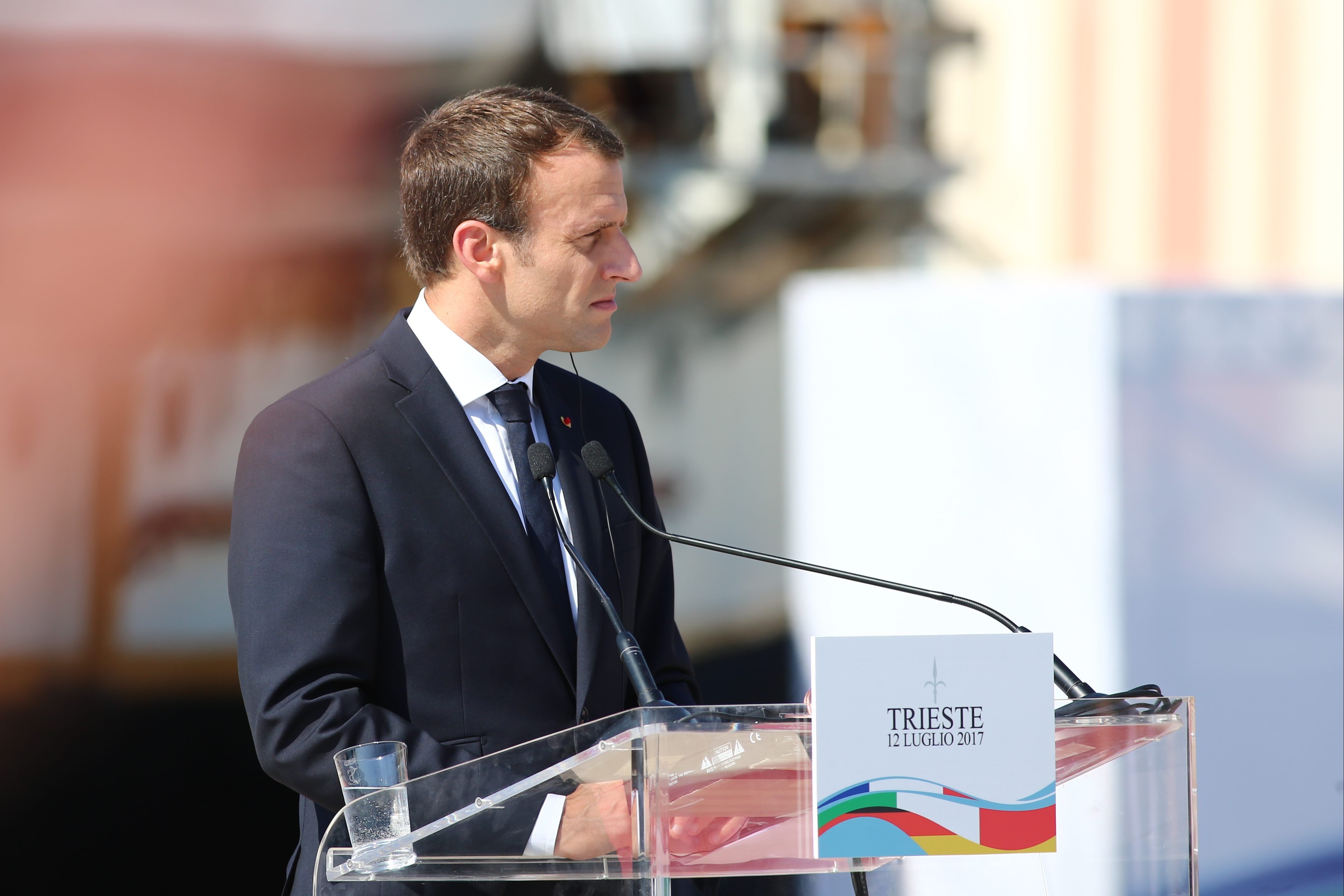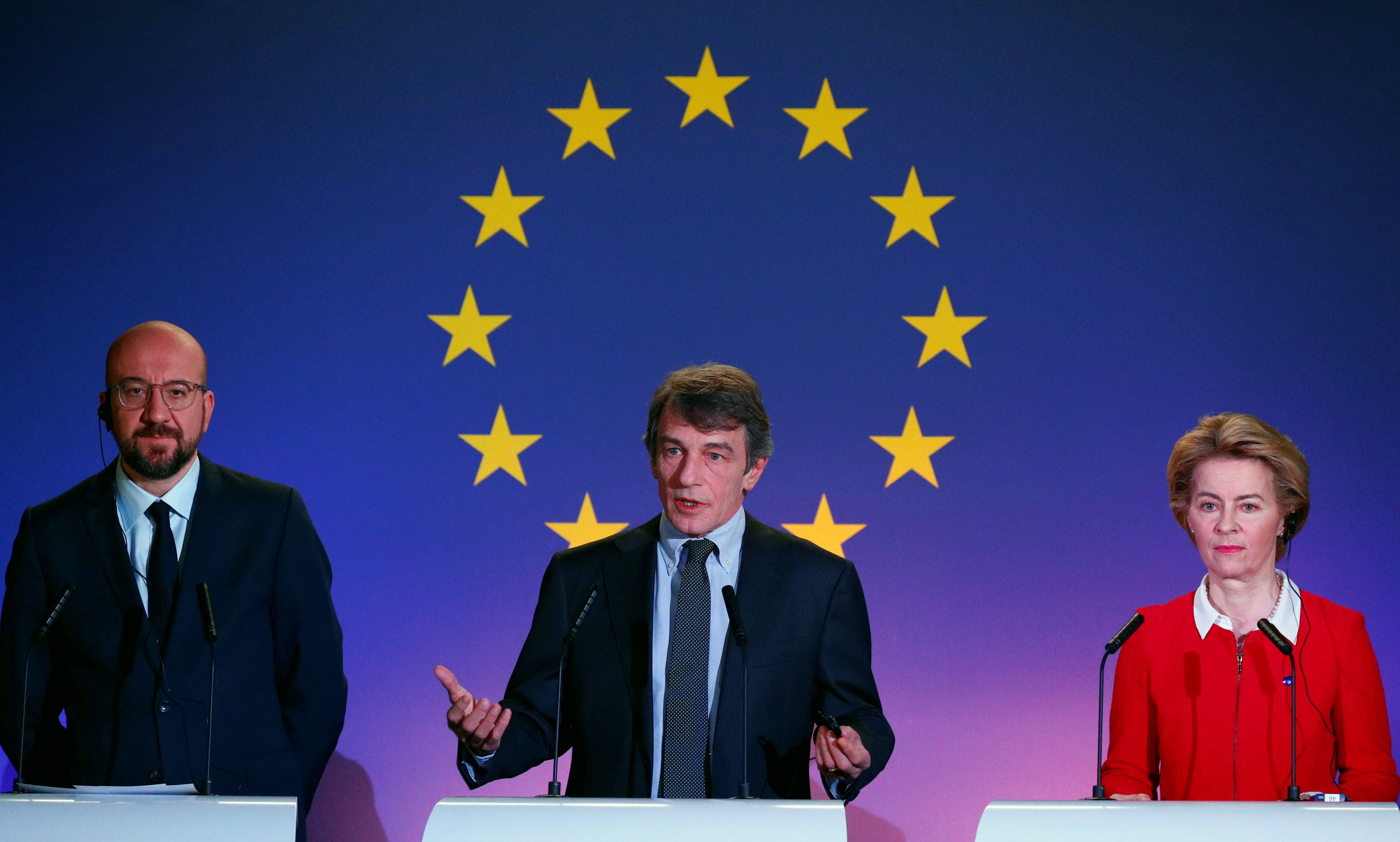Changes to EU Enlargement Policy

Political Context
The Communication from the EC presented on 5 February is a reaction to the crisis of the enlargement process provoked by the lack of unanimous agreement to start accession negotiations with Albania and North Macedonia, recommended by the Commission, in June and, again, in October 2019. France was the most vocal opponent of this decision. In order to adopt a more constructive position, the French government published a proposal to modify the methodology of accession negotiations, putting more stress on the rule of law and emphasising the reversibility of the process in the case of regression in reforms. It justified the need for changes by pointing out the slow progress of accession negotiations with Montenegro and Serbia, which have been going on since 2012 and 2014, respectively, with only three and two chapters closed so far. Another statement was issued by a group of nine states (including Austria, Italy and Poland), which have traditionally supported the European ambitions of the Balkan states. It was not an alternative to the French proposal, but it broached similar issues, such as the importance of conditionality and the rule of law, focusing on improving the incentives for candidate countries.
The Commission Proposal
The document applies to the Western Balkans only as accession negotiations with Turkey are de facto frozen. The EC attempts to generate greater political momentum behind enlargement by announcing regular summits between the EU and Western Balkan states, and intensified contacts on the ministerial level. It intends to enable national experts to participate in assessing the progress of reforms in candidate countries. In reaction to the French proposals, the EC put a strong emphasis on the rule of law and the functioning of state institutions. The requirements for candidate countries in this domain are to be made more precise.
The negotiating chapters will be divided into six thematic clusters. Considering related topics together should, according to the EC, lead to quicker progress. But the EC wants the thematic clusters to be negotiated simultaneously, not in sequence, as the French suggested. The communication announces clearer guidelines for candidates regarding the reforms and the rules for their assessment, but apart from the rule of law, it does not mention policy areas in which such clarification is needed.
The EC wants to strengthen the conditionality of the negotiation process by bolstering the system of incentives and sanctions for candidate countries. It reiterates the intention to make pre-accession assistance more dependent on the assessment of progress, which was spelt out in the draft regulation negotiated since June 2018. In that regulation, the EC suggested to renounce the division of funds based on national envelopes, and thus broaden its capacity to reward those who make greater progress. The EC wants the incentives to include not only participation in EU programmes (such as Erasmus) and privileged access to the market (currently applied) but also to phase them in to EU policies. It does not, however, give details of this idea. Prolonged lack of progress or regression in reforms may lead to loss of those privileges and cuts in financial aid. The proposal also states that negotiations could be suspended (either completely or within selected thematic clusters), and chapters already closed may be re-opened.
The modified accession negotiations methodology will be supplemented by a new strategy to boost economic relations, which the EC is to unveil at the summit between the EU and the Western Balkans, in Zagreb this May. Despite increases in European investments and the value of trade between the EU Member States and the six countries of the region (by more than 40 per cent between 2014 and 2018), the economic situation and high unemployment remain serious problems for the Western Balkans, and one of the main reasons for high emigration.
Potential Effects of the Proposal
Making pre-accession aid more dependent on the results of reforms could be an incentive for the governments of candidate countries. Also, it could probably strengthen public support for accession by demonstrating that adopting EU standards can translate into concrete benefits relatively quickly. Another way of expanding material help for the candidates would be to make them eligible for EU structural funds, as suggested by France, once the relevant negotiating chapters have been closed. The public administration could thus gradually prepare to manage larger sums after accession.
The EC also wants to motivate the candidate countries to change by declaring that it will be more firm in reacting to delays or regression in reforms. Suspending negotiations in reaction to a prolonged lack of progress would constitute a clear signal for the electorate in a candidate country that their government is not serious about accession.
Allowing the Member States to participate in the evaluation of reforms in candidate countries should keep them interested in the region and limit the likelihood of the EC assessments being challenged by them at key moments in negotiations. However, it could grant disproportionate influence to the largest Member States, who have the appropriate resources to analyse the events in the region thoroughly. It could also facilitate Member States’ attempts to settle bilateral problems with the candidate within the framework of accession negotiation.
The negotiating framework, however streamlined it might become, will not supplant the political will of both sides. In the candidate countries, some members of the political elites delay reforms for fear of losing their privileged position. In several Western European states, weak public support for enlargement (in France, Germany and the Netherlands only at the level of 31-33%) often encourages politicians to adopt ambivalent positions in this respect. The credibility of the Union’s willingness to adopt new members suffers as a result, while the reformist forces in the Balkans are demotivated.
Conclusions and Prospects
Even though the EC does not promote far-reaching changes to negotiations methodology, the political effects of the initiative could be significant. It is likely to lead to the accomplishment of the most important short-term goal of enlargement policy that is the commencement of accession negotiations with Albania and North Macedonia. While the proposal reflects the key ideas advocated by France, it does not contain elements that could provoke opposition from the most determined advocates of enlargement, including Poland. In addition, the March European Council summit, at which the leaders will return to the issue of enlargement, is scheduled after local elections in France. Therefore, there is a much smaller risk that President Emmanuel Macron will again oppose starting negotiations for fear that it would provoke a negative reaction of the French electorate that is sceptical of enlargement.
If the French veto is lifted, the EC’s quick reaction will be particularly important for North Macedonia. It can help the reformist forces to achieve a better result in the early parliamentary election scheduled in April, following the fiasco of efforts to start negotiations last year. It will strengthen the pro-European forces in other states as well by demonstrating that enlargement is a genuine, not only declared, goal of the EU. In this way, the EC will lend credence to its president’s ambitions to play a bigger role in the EU’s neighbourhood and in global politics.
Macron emphasises that the EU can enlarge only once it has carried out internal reforms. It seems, therefore, that the outcome of the accession process will be determined not only by the progress made by the candidate countries but also by a compromise between the Member States around internal changes, especially institutional. Such a compromise could be worked out by the Conference on the Future of Europe that will be convened later this year.





